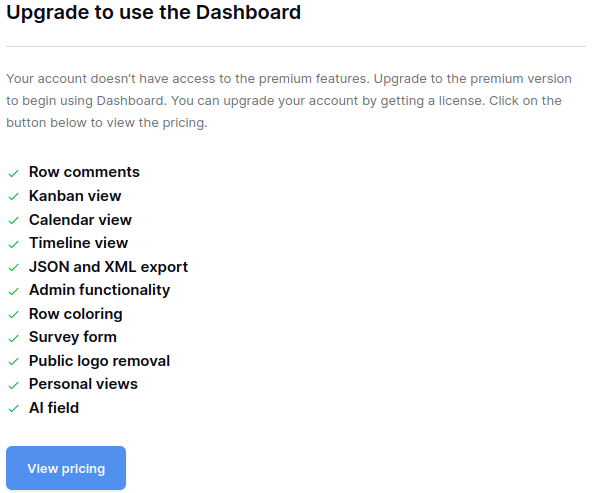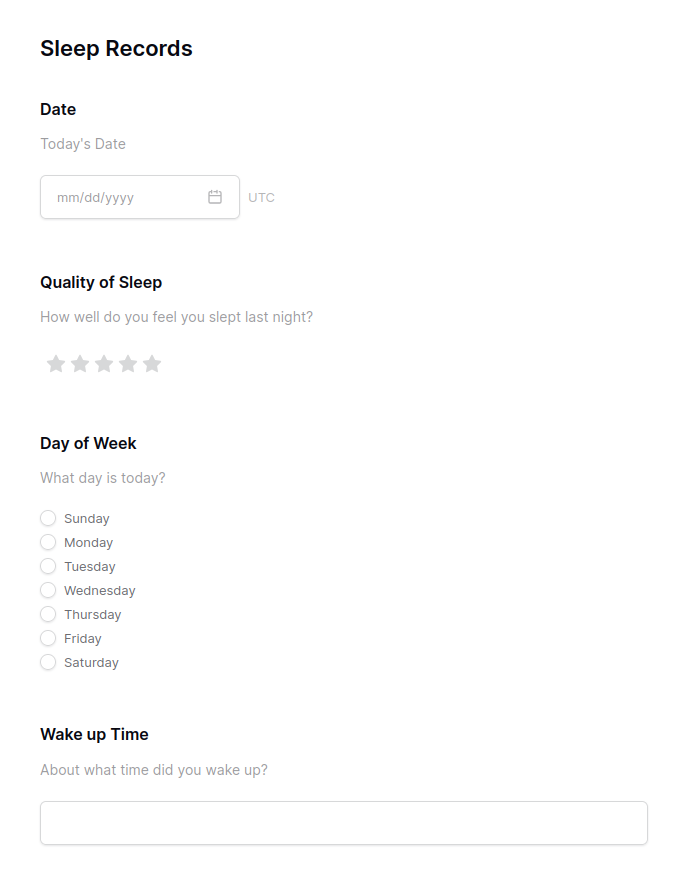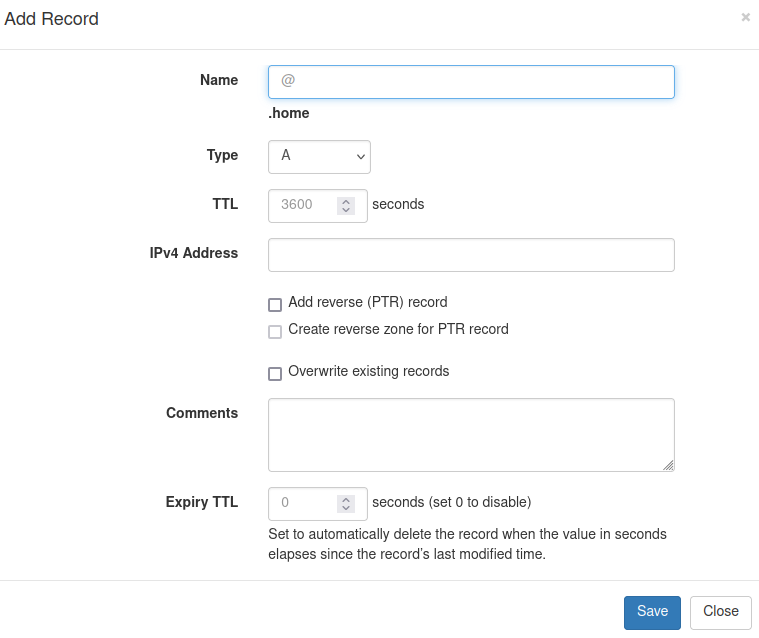No one metioned https://hoarder.app - bookmark app featuring offline archive, full text search and AI auto tagging
In no particular order, the most essential ones are those I constantly use throughout my day and also weekly.
Proxmox holds all of these in different LXC’s and VM’s
- Home Assistant
- Pocket-ID - https://github.com/stonith404/pocket-id (Exclusive Passkey login system as in -no un/pw just your Passkey which - doubles as an OIDC provider)
- Homepage (By Ben Phelps of gethomepage.dev)
- Vaultwarden
- TechnitiumDNS which handles all of my DHCP and Adblocking in a one system, extremely capable software especially useful for SOHO too.
- Baserow - Airtable alternative. It holds certain items of importance like what MAC address each device in my home network holds and what IP It uses in an intelligent view. I also was using it for a while to log issues with my sleep where I deal with insomnia, so I logged how well I slept, how many times I woke up, how long it took me to fall asleep etc. That was a simple form I created using drag/drop in Baserow and called by a URL.
- OpenVSCode server - makes editing my Homepage (above) yaml and my docker-compose files a breeze! It’s especially nice when you edit it something and it auto saves almost instantly. Makes some of my services change in real-time!
- UptimeKuma - Simply one of the best out there for me
- Gotify - I get alerted to my Tuya based dehumidifer tank being full via Home Assistant, Downtime alerts from UptimeKuma and a variety of other services which I deem higher priority alerts over “fix when you can” ones.
Aside from that, i do have other services I use every so often like Memos, Joplin Server (holds most of my notes), Pingvin and a few others.
I tried Baserow a while ago but decided not to use it because it started downloading the application after running the container and required an online account (that could also be NocoDB). How has your experience been after using it for longer?
I had to create an account as per the usual process for these types of apps, but it was all local. I never had to do one to connect to their servers. I know it generates a unique instance ID which I believe phones home to their servers but I don’t mind personally.
As for my experience, a lot of it is locked behind their paid plans, so I just keep it limited to what I use which is fine. I do like it as it does better than NocoDB for my needs (the input forms is what I needed) and it does better there. I don’t recall the other reasons for not using NocoDB otherwise, but it’s a long while.
Their pricing is here: https://baserow.io/pricing

So, that’s mostly what is locked behind. My sleep form I built which feeds the database:

Overall, it does meet my needs so that’s all I ask. :)
+1 for UptimeKuma. Works great.
Does Technitium support DNS rewrites like Adguard Home?
I’m about 99% sure it does, I don’t use it that way but It does allow DNS zones. For example:

It’s a lot more technical then Adguard Home for sure. Both work just fine though, I came from Adguard Home as I use a PXE server to provision some of my devices and Technitium is super easy to configure that.
For me:
- Card/CalDAV baikal : so that I can sync my calendar and address book across phone, tablet, workstation, and laptop
- Messaging prosody/synapse : private chatting with family.
- File sync Nextcloud : for access to various files. This is the only one that has worked consistently for me. Syncthing et al would constantly lose connection and the file I needed wouldn’t be there. Works fantastic for syncing Joplin notes.
- VPN wireguard : to access things remotely and securely
- Audiobooks audiobooksheld : I have a ridiculously large audio book library and enjoy listening to them when driving. This way I don’t have to preload my phone.
- Ebooks calibreweb : another large library. I have separate instances for different types: Magazines, regular books, RPG/gamebooks.
- Version control forgejo : for coding and creative writing projects.
- bookmarks shaarli : I find myself using this less and less. I use Firefox’s built-in sync, so I’m thinking about switching to separating selfhosting that instead of shaarli.
- Photos Synology : looking forward to immich getting stable. Once they get past regular breathing changes I’ll move over to that.
I have stopped using most of the services that got me into selfhosting. Things like rss and wikis. I try new things from time to time but kill them if I don’t find myself using them regularly or if the maintenance cost is more than the value add.
where do you source your magazines from out of interest? Are they epubs etc?
Every where and any where. They are a mix of PDF and epub.
Adguard home
and Wireguard pointed at AdGuard for DNS
Set the mobile app to enable WireGuard connection when not on home network and then you have AdGuard everywhere
I’ve pointed my domain to my wireguard tunnel VPS IP, same result. I can just set my private DNS in settings pointing to my AdGuard domain
- Pihole (if that service goes down, everyone in my house gets mad at me)
- Jellyfin
Everything else is a nice to have, not essential
The arr family with a torrent client is great for feeding Jellyfin. If you are a developer, you can host your own shit there too. Game servers for playing with family and friends (so far Minecraft, Terraria, Project Zomboid, V Rising). I like to host a bunch of different telegram bots I wrote for fun. Discord bots are another interesting side. I also run some automation runners for helping out with testing, building and deploying my projects.
Focus on your needs and what you want to improve of your online life, there is probably a project you can self host for it.
(if that service goes down, everyone in my house gets mad at me)
I bought a PiZero and set it up as a redundant pihole for this reason. It’s slower because it’s wireless, but not super noticeable since it’s ‘just’ DNS. I have the router pointed at the main and backup all the time and if I need to do something (or break the main one messing with dockers) there’s still the backup until I get the main up.
I messed around with some High Availability configs where they both had the ‘same’ ip but could never get it working smoothly. I just use the teleporter functionality within pihole any time I update anything to keep them in sync, which is rare.
I did something similar, but then I turned my pizero in a portable retro console lol.
Please not these posts again
This thread is pinned for a reason: https://lemmy.world/post/60585
No one’s mentioned Forgejo yet? Solid git and artifact repository.
vaultwarden, jellyfin, freshrss, nextcloud, and wireguard
How is fressrss?
I am also running readarr and bookshelf
It’s perfect, better with themes
Any themes you specifically recommend? I just use native apps on my phone and laptop, but it would be nice to improve the theme when I administrate.
I’m using Mapco now but was previously using Swage. There are 11 options. Just fun to switch it up! I’m sure you can make your own as well but the options are an attractive change :)
I used freshrss for quite some time, but the themes always looked a bit “off” for me. Went to miniflux and its awesome in its minimalism.
Audiobookshelf, Calibre-Web, Plex/Jellyfin, FreshRSS, NextCloud, DokuWiki.
Opnsense
Vaultwarden
Email
Home assistant
Emby
Gitea
Paperless-ngx
Firefox
Honest question, I’d love to host email but it seems like a huge pain in the ass these days with trying to keep from being delisted. Is there a decent, home user accessible email system that’s useable out there?
A decade ago it was easy and doable but even in professional life I don’t deal with email backend anymore, all google or o365.
You’ll never get away from maintenance for ant service you host, and you need a VPS at a minimum to handle mail unless your ISP allows it (which they probably don’t). There’s going to be front loading needed in order to make sure the IP you’re given isn’t on blocklists, and you’ll need to take appropriate measures with Apple, M$, Google, Yahoo, etc in order to send email to their domains. The good thing is that I’ve you do that, you’ll never need to touch it again.
I personally use iRedMail because of the breadth of documentation, but mailcow and others like that are allegedly nice. I prefer the omnibus solutions because I don’t care to do manual service configuration if it’s not necessary.
Been doing email hosting for my domain for 25 years, 12 years with iRedMail.
I’m also using iredmail. Apart from it needing more hardware than it used to its been pretty stable. I use an SMTP Relay for sending mail, so I don’t hit issues with sending. Not that I ever actually send many emails.
Highly recommend purelymail. No nonsense mail, with straight forward pricing.
I use an SMTP Relay for sending mail, so I don’t hit issues with sending.
Firefox
You mean you self-host your profile?
No. I host Firefox that runs in a browser.
It’s one of my favourite things. So places that may block certain sites can be bypassed.
Not sure why I was downvoted for answering a question accurately.
How do you self host Firefox? This is something I’d like to setup!
It’s this: https://github.com/jlesage/docker-firefox
For me, the most essentials are definitely:
- PhotoPrism
- Jellyfin
- Navidrome
- Wiki.js
Docker
TCP/IP
Sorry, this is an AppleTalk household.
I laughed my ass off when Chris from LUP podcast said they used Netbeui in their studio. I wouldn’t admit to that, myself.
Excuse me, what?
Biggest Linux podcast in the world, uses NetBEUI. Yah, there’s that.
Man, I haven’t seen a reference to that protocol in a very long time.
When I was studying for my first MCSE back in ancient times, my girlfriend heard me mention ‘netbeui’ and thought it was the funniest damn thing. She used to catch me throwing out all the computer jargon and just yell “NET… BOOEEEEEY” at me.
For me it’s the first thing i learned how to self host: Nextcloud …which in turn allows me to sync Joplin notes, which I use constantly
I have a dedicated vm for things that are crucial to the home network, either latency-critical or network related.
That’d be my dns resolver (I enforce it over VLANs by hijacking anyone trying to do DNS to other resolvers, like random IoT devices), homebridge for less important home automaton and my own matter controller for most important home automaton (controlling the lights).
My router of choice is RouterOS in another VM. I tried opnsense, pfsense, vyatta, and a bunch of others (even a containerized Cisco route), and I settled on ROS, because it was the only one who could do IPv6 properly (apart from Cisco, but that has other issues).
For the less important things I run them on k8s and really, there are only two bits worth mentioning as essential: ArgoCD and nixhelm. Together, they provide effortless and mostly automated software updates with very easy rollbacks. I don’t have to go and manually update every single bit of software and that saves huge amounts of time.
- AdGuard home (usable also as private DNS on Android)
- JellyFin
- Homeassistant















